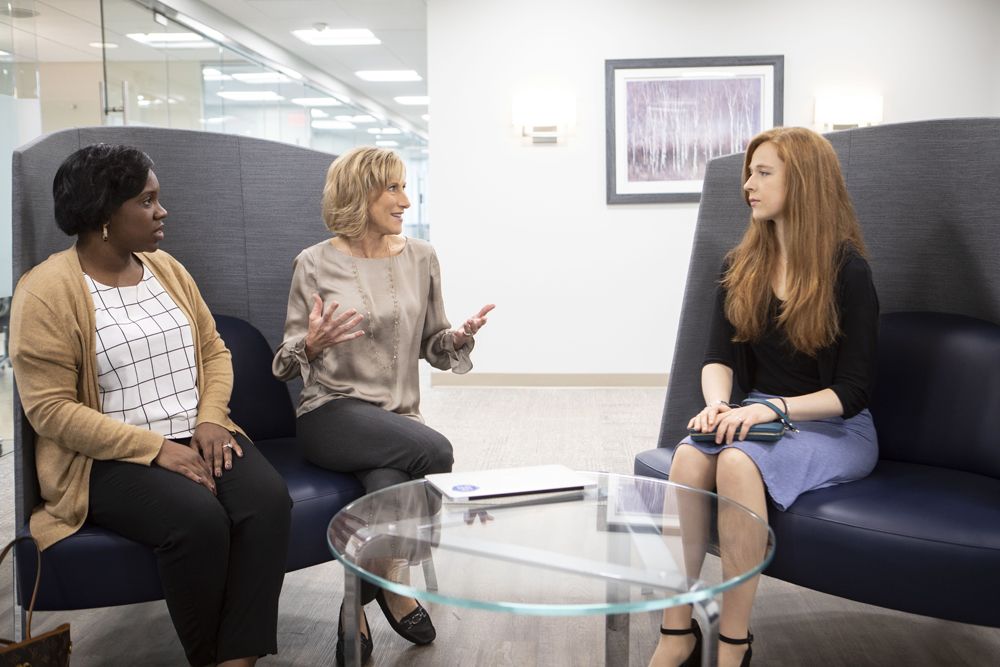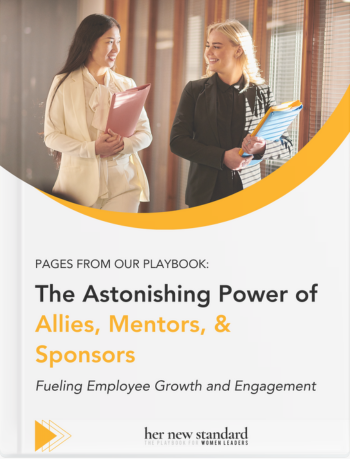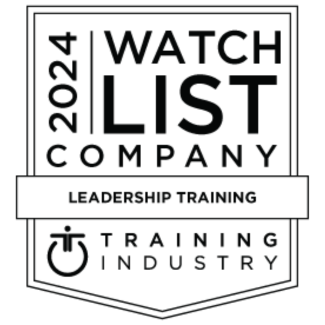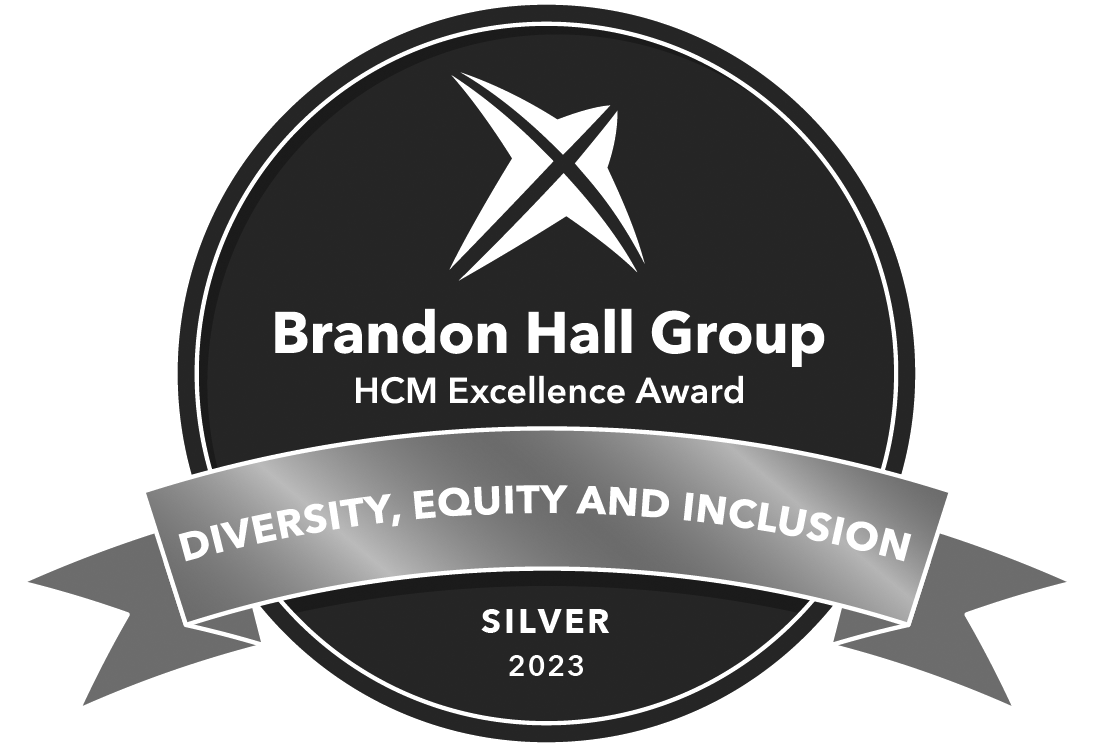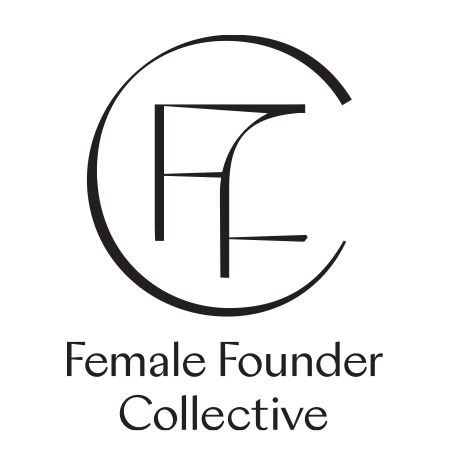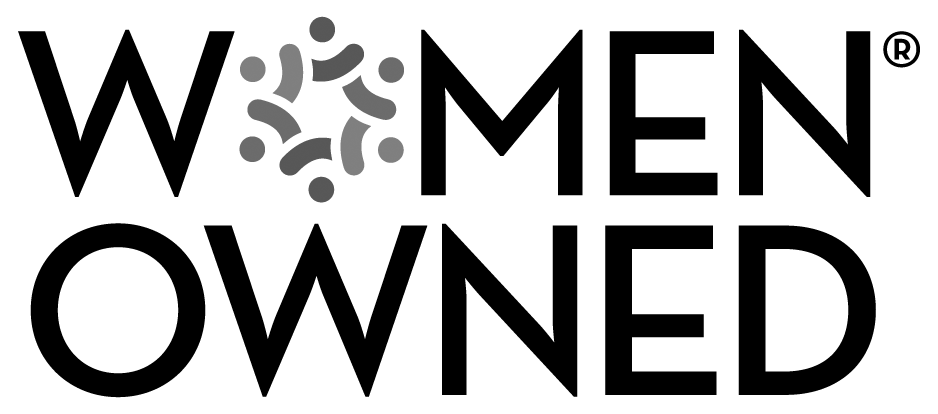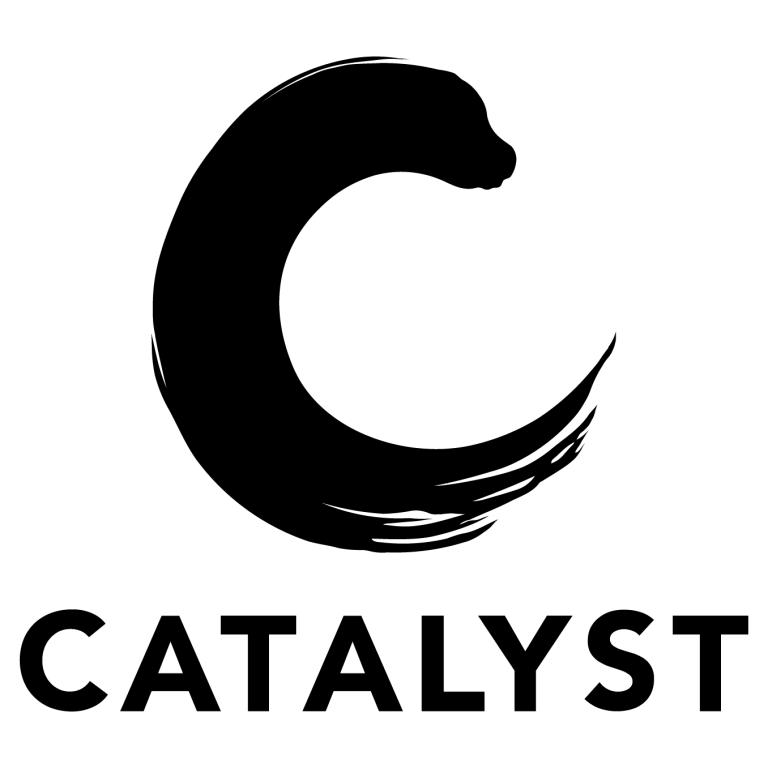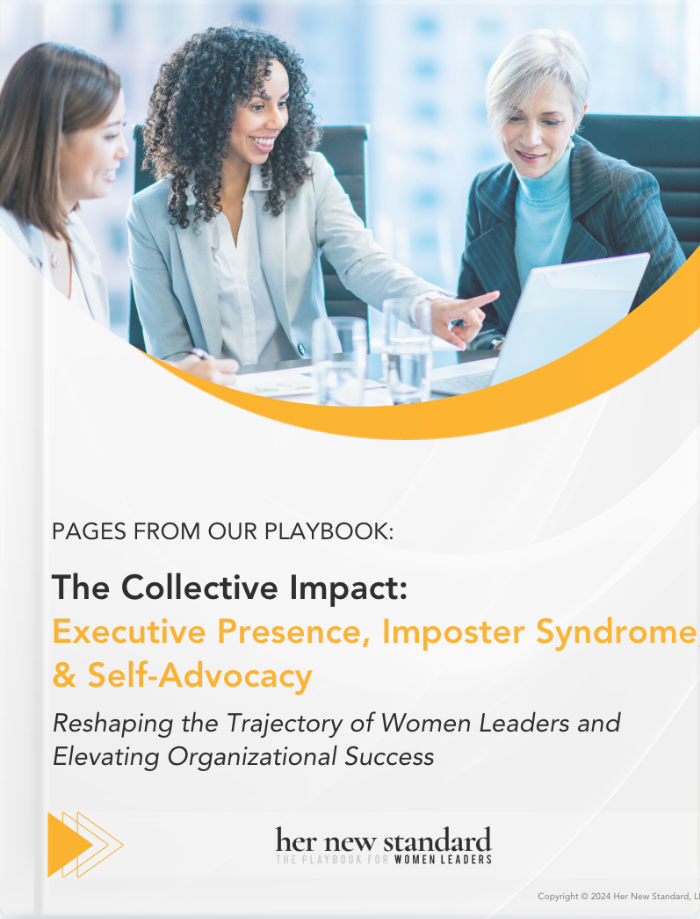In our women’s leadership development programs, participants consistently rate executive coaching as one of the most valuable aspects of our 4- and 6-month bootcamps. This month, we are honored to have four of Her New Standard’s executive coaches share some words of wisdom with us. Each has extensive experience working with women leaders (click here for their full biographies).
June Amori is an executive coach and former Chief Marketing Officer at Prudential. June has coached high potentials preparing for the next level, solid performers who need to close performance gaps and individuals making the leap from management to leadership.
Alina Campos, PCC, is a certified coach and facilitator whose coaching is heavily influenced by Positive Psychology. Alina spent over 18 years in marketing and over a decade leading teams in operations and employee development.
Linda Schnabel, PCC, is an executive coach and facilitator with over two decades of experience as a leadership, team, and career development coach. She has worked with hundreds of individuals, including C-suite leaders, across a diverse range of industries.
Karen Senteio is a certified coach and specializes in courageous leadership. She has over 30 years in corporate leadership and experience in Operations, IT, Diversity, Equity and Inclusion, Training, Facilitation and Change Management.
*Responses have been edited for brevity and clarity.
1. What organizational or systemic barriers are women facing and what works best in overcoming them?
Karen: One of the biggest barriers women face is not knowing the system, or that a system even exists. Women must be strategic in building relationships and understanding how these relationships work in the system.
Alina: Yes, and since women make up only 36% of senior leadership roles and only 26% of C-Suite roles (McKinsey & Lean In, 2022), women are often lacking aspirational role models within their organizations and have less access to mentors and sponsors to champion their advancement. To help overcome this barrier, women should begin building their networks early in their careers by staying in contact with former managers, attending industry events and offering to help on high-visibility projects that will expose them to more leaders within their organization.
Linda: By becoming the champions of their own careers and tapping into senior sponsorship, women can overcome the barriers to upward mobility, even in large, hierarchical organizations. First, gain clarity on your unique value proposition and how it aligns with your organization’s overall goals. Then lean into your coach, your boss, or another trusted member of your network to help you create your “leadership brand” statement. Identify those within your organization with whom you will share this message. Many women have accrued mentors who not only share leadership wisdom and tips for advancement, but also act as sponsors and spokespersons when opportunities arise for which their leadership brand is a match.
June: Men and women can and often do approach problems/solutions differently–which is a good thing! However, when women are in male-dominated meetings, they can back off from speaking out because their view is in the minority. Once they can truly appreciate that their unique perspective is valuable, women are more inclined to speak out. Even if their view is not embraced, it doesn’t mean it shouldn’t be offered. If you don’t demonstrate that you value your opinion, why would anyone else?

2. In what areas do you see women holding themselves back? What helps them to get unstuck?
Karen: One way women hold themselves back is by obeying non-existent rules. It’s important to challenge and rethink these rules. For example, during times of considerable change, we often rely on what we know, or what has worked in the past, instead of taking a fresh look at a challenge that has likely evolved. In these cases, rethinking can help women to get unstuck.
Linda: Comparison is another destructive habit that holds women back. When comparison begins to fuel thoughts of inadequacy, lean into a new thought that focuses on what you know to be true about yourself. Over time, this practice of changing paths in mid-thought can allow a new neural pathway to get stronger. It isn’t meant to justify or whitewash obvious areas for development, but instead provide a useful action when “in-the-moment” comparison begins to vie for your attention. Another way to reinforce new neural pathway growth is to practice visualization–picture what it looks like and feels like when you are successful.
June: Similarly, one thing I see often is that many women are concerned about their shortcomings, and therefore defer to others who they view as smarter and more experienced. When I spot this, I ask them to do an exercise: Write no fewer than 20 benefits that you bring to the organization, the project, or the meeting (e.g., your knowledge, skills, abilities, characteristics). They can do more than 20 but not less! This has been eye opening for women and helps them to sit firmly in their value.
Alina: I find women often struggle with self-promotion. They hold back from sharing their accomplishments with others, as they feel uncomfortable doing so and assume that as long as they keep working hard, others will notice and recognize them for it. Sadly, that is not always the case. Again, a shift in mindset can help women to become more confident in this area. For example, instead of thinking, “I don’t want to sound like I’m bragging,” try thinking, “Others need to know what I’m capable of in order to feel comfortable promoting me.”

3. What words of wisdom do you have for women leaders who want to fulfill their potential?
Karen: Know what you want, and know your worth!
Linda: Yes. Understanding your strengths, opportunities for development, personal style, and values leads to self-knowledge. Instead of following the course of least resistance, or succumbing to a prescribed path, strong self-knowledge helps you clarify how you can leave your unique fingerprint on your work and life. Having conviction about what you want and who you are allows you to articulate your leadership brand, which is a natural extension of who you are at the core.
June: The most important thing women can do, in my opinion, is to manage their response to stressors. When we feel pressure for long periods, we lose our ability to see challenges and solutions clearly; we lose our creativity, our joy, our confidence, and our ability to stand up for what we believe. A good start is slowing down our speech and developing a habit of taking deep breaths as often as possible, and practicing self compassion. Women who want to fulfill their potential must realize they will make “mistakes.” If they can accept their humanity and be compassionate, they will take more risks and THAT will propel them forward.
Alina: Also, consider relationship building to be part of your job, not a separate thing (that can be deprioritized.) Without a network of solid connections and supporters, you are limiting your opportunities for learning and advancement.
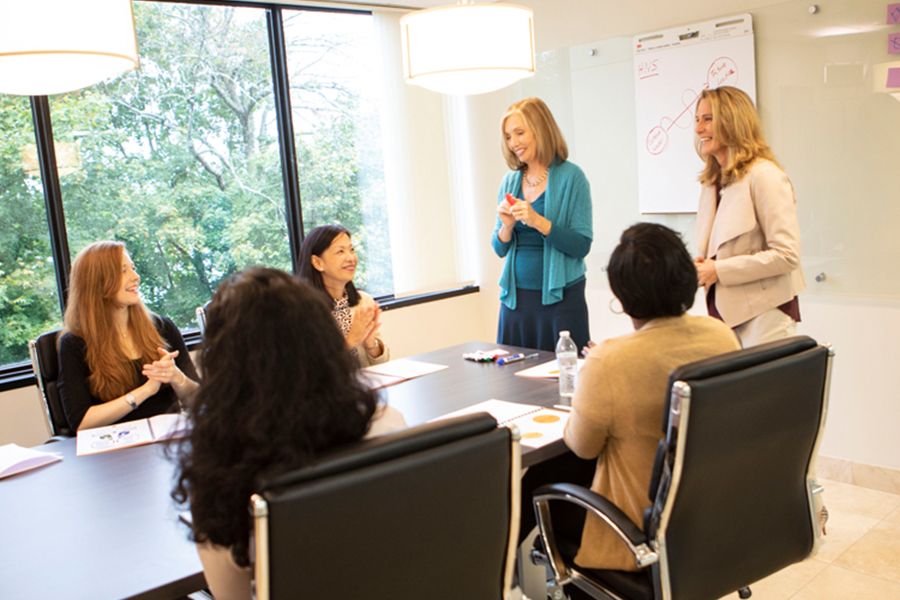
4. What have you observed to be some of the benefits of women’s leadership development programs, or of coaching?
June: I’ve noticed that one of the biggest benefits of HNS’ programs is the normalization of issues. Women hear firsthand that they are NOT alone in their struggles. They recognize that many other women experience the same thoughts, frustrations, fears, disappointments, challenges. It depersonalizes the problems, allowing participants to work on overcoming the barriers, rather than focusing on “there is something wrong with me.”
Alina: Women’s leadership development programs, coupled with individual coaching, can help women build essential leadership capabilities and share common challenges with other women. Importantly, they also help women build their self-efficacy and confidence by providing them with a safe place to deepen their self-awareness.
Karen: Awareness is definitely one of the key benefits. These programs help women develop awareness of their worth, their strengths, and their challenges. Participants have a better understanding of what is needed to impact the organization, and what authentic leadership (i.e., their unique blueprint) looks like in practice.
Linda: Some of the additional benefits of coaching and leadership development programs also include increased leadership capacity and the ability to manage change with more ease. They also help women develop relationship management skills and the ability to influence others positively. These programs also help participants create a clear career development plan and generate fresh ideas to address professional challenges and opportunities.. Participants also get better at managing stress, increase their productivity and satisfaction at work, and often walk away with a renewed sense of purpose.
5. What surprises you most when you coach women leaders?
Linda: It continues to surprise me how self-doubt tends to be a common trait of most very strong, successful, and capable women. Often, in spite of the polished outer presentation, a lingering sense of “not good enough” remains.
Alina: I agree, their self-perception is usually not consistent with their achievements. Even the most senior women leaders lack confidence when it comes to speaking up amongst senior executives or male counterparts. This is why coaching is important for women at all levels. It helps them to become aware of their strengths and pushes them to challenge assumptions and self-limiting beliefs about themselves.
June: What surprises me most when I coach women leaders is how isolated they feel in the organization and how hungry they are for an objective sounding board.
Karen: At the same time, as a coach, nothing surprises me because we are all human beings with insecurities, triumphs, stories, and experiences that have shaped who we are. Women leaders are unique combinations of all of that.
Her New Standard’s women’s leadership bootcamps provide leadership training and peer group support in community with other women leaders along with one-on-one executive coaching with our impressive team. Thanks to Linda, Alina, June and Karen for sharing their insights with us!
Enjoyed this post? You might also like…



